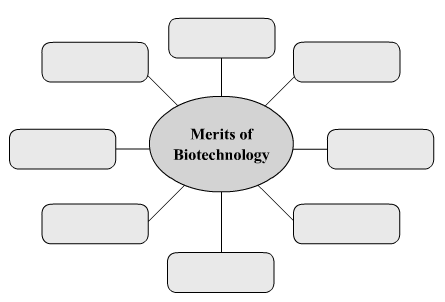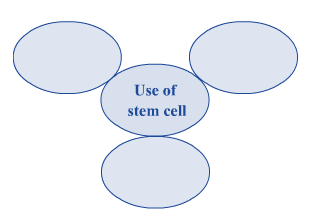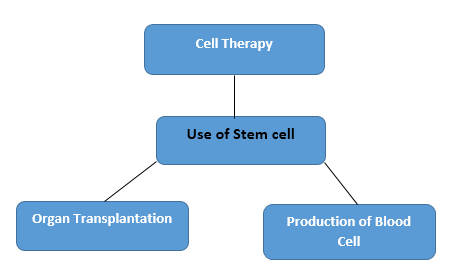Cell Biology and Biotechnology
Class 10-Science & Technology Part-2-Chapter-8- Maharashtra Board syllabus
Solution
Question 1:
Fill in the blanks and complete the statements.
a. Methods like artificial insemination and embryo transplant are mainly used for --- --- ---
b. -- -- -- -- is the revolutionary event in biotechnology after cloning.
c. The disease related with the synthesis of insulin is --- --- ---.
d. Government of India has encouraged the -- -- --- -- for improving the productivity by launching NKM-16.
a. Methods like artificial insemination and embryo transplant are mainly used for Animal Husbandry.
b. Stem cell reaserch is the revolutionary event in biotechnology after cloning.
c. The disease related with the synthesis of insulin is diabetes.
d. Government of India has encouraged the Pisciculture (Aquaculture) for improving the productivity by launching NKM-16.
Question 2:
Match the pairs.
| a. | Interferon | 1. | Diabetes |
| b. | Factor | 2. | Dwarfness |
| c. | Somatostatin | 3. | Viral infection |
| d. | Interleukin | 4. | Cancer |
| 5. | Hemophilia |
a.
Interferon
Viral infection
b.
Factor
Hemophilia
c.
Somatostatin
Dwarfness
d.
Interleukin
Cancer
Rewrite the following wrong statements after corrections.
(i). Changes in genes of the cells are brought about in non-genetic technique.
(ii). Gene from Bacillus thuringiensis is introduced into soyabean.
(i) Changes in genes of the cells are brought about in genetic technique. Or Non-genetic technology involves use of either cell or tissue (ii) Gene from Bacillus thuringiensis is introduced into cotton plants.
Question 4:
Write short notes.
1. Biotechnology: Professional uses. Biotechnology can be used in the many professional fields, like. crop biotechnology, animal husbandry, human health, environmental Pollution etc. (i) In agriculture biotechnology is used to produce improved varieties of plants and animal breeds, and to control pests and pathogens. (ii) By using biofertilizers, the use of chemical fertilizers is reduced. Use of bacteria such as Rhizobiurm, Azotobacter, Nostoc, Anabaena and plants like Azolla the nitrogen fixation and phosphate solubilization abilities of the plants are improved (iii) Animal husbandry is now using the methods of artificial insemination and embryo transfer by which the breeds of cattle are improved. (iv) It is applied in food processing industries to produce additives. (v) It is applied to produce biocatalysts and biopolymers. (vi) Many biotechnological processes are applied to control pollution and treat waste water. (vii) It is applied in the field of health care to produce several vaccines, drugs and hormones like insulin, etc. (7) DNA fingerprinting technology has revolutionized the profession of forensic science.
2. Importance of medicinal plants.
Medicines made from harmful chemicals have side effects and are not safe to be used unless there is medical supervision. Therefore, world-wide herbal remedies are gaining more popularity. In entire world people have understood the importance of holy basil (tulsi), Adulsa, Jyesthmadh, Turmaric (Haldi), Ginger, etc. In Ayurveda practices, the natural remedies were used. In olden days, such herbs were collected by roaming in the jungles. Such important medicinal herbs are now cultivated with care.
Several plants have medicinal properties which can be used as medicines. Some of the plants grown for their medicinal value are:
Question 5:
Answer the following questions in your own words.
1. Which products produced through biotechnology do you use in your daily life?
There are various products which we use in our daily life that are produced by biotechnological processes. We are making curd and buttermilk at home is the simplest use of biotechnology in daily life. Using Biotechnology, products are produce to use in daily life such as :
2. Which precautions will you take during spraying of pesticides?
3. Why some of the organs in human body are most valuable?
4. Explain the importance of fruit processing in human life?
5. Explain the meaning of vaccination.
Question 6:
Complete the following chart.


Question 7:
Write the correct answer in blank circles.


Question 8:
Identify and complete the following correlations.
1. Insulin : Diabetes :: Interleukin : -- -- --
2. Interferon : -- :: Erythropoietin : Anemia.
3. ------- : Dwarfness :: Factor VIII : Hemophilia.
4. White revolution : Dairy :: Blue revolution : -- -- -- --.
1. Insulin: Diabetes :: Interleukin: Cancer 2. Interferon: Viral infection:: Erythropoietin: Anemia 3. Somatostatin: Dwarfness :: Factor VIII: Hemophilia 4. White revolution: Dairy :: Blue revolution: Aquatic organisms
Question 9:
Write a comparative note on usefulness and harmfulness of biotechnology.
Biotechnology has revolutionised the field of science and technology. It has provided us with solutions to our problems which would not have been possible otherwise. It has proved to be useful in the field of agriculture, medicine, clean energy and industrial products. Its many potentials are still being exploited. However, despite the various merits of biotechnology, there are certain demerits also associated with it. Demerits of biotechnology :
Merits of biotechnology:
Although biotechnology has found a widespread applications in various field, it has its own potential risks. Some of its demerits are:
Useful links :
| Main Page : - Maharashtra Board Class 10 Science & Technology Part-1,Part-2 - All chapters notes, solutions, videos, test, pdf.
Previous Chapter : Chapter-7-Introduction to Microbiology - Online Solution Next Chapter : Chapter 9- Social Health -Online Solution |
Helped a alot 😌 thank you …!